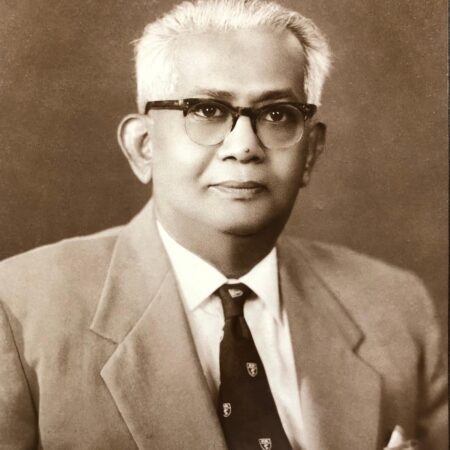Challenges remain, notably in supplying the advanced IT graduates necessary to spur future growth; however, with fundamental infrastructure largely in place, Sri Lanka should continue to expand its role in a burgeoning global market.
In figures
Recent years have seen significant growth in Sri Lanka’s ICT revenues, particularly exports, given its limited domestic market. From $128m in revenue in 2007, figures rose to $325m in 2009, $440m in 2011 and $719m in 2013, representing 6.47% of total exports. With official figures slightly delayed and reliant on periodic industry surveys, estimates for 2014 were around $820m with projections for 2015 topping $1bn.
The industry aims for a total of $5bn in revenue by 2022, with 200,000 direct jobs and 1000 new start-ups.
These numbers largely align with accelerated global growth rates for BPO. The global BPO market is projected to grow at a five-year compound annual growth rate of 5.3%, reaching $202.6bn in 2016, according to the International Data Corporation, an IT market research and advisory firm.
Niche business
Stakeholders highlight that the development of Sri Lanka’s IT sector remains quite differentiated from that of neighbouring India, which, according to its own IT association, the National Association of Software and Services Companies, recorded an estimated $146bn in revenues in 2015, with exports forecast to reach $98.5bn.
Specifically, Sri Lanka shows unique expertise around building intellectual property and software engineering, at a higher value-added segment of the market.
“In India it has historically been a numbers game, with a wide range of services offered at a low price point,” Mack Gill, CEO of MillenniumIT, a local IT firm providing capital markets software and services to a number of global exchanges, told OBG. “But Sri Lanka is coming at it from a different perspective, as it is obviously smaller, but also has a strong legacy in engineering.”
Apart from products and services, there is also an emphasis on different sized clients. Jeevan Gnanam, CEO of Orion City, the island’s only private IT park, told OBG that Sri Lanka has a true leg up on India in the small and medium-sized enterprises (SMEs) market.
“We are not so much focused on big-scale business out of places like the US, as many of them are already covered, but there is a lot of scope around SMEs that can save on cost and get quality work,” he told OBG.
All this has given rise to a number of strong, internationally focused local firms, which have garnered success in recent years.
MillenniumIT, for example, was acquired by the London Stock Exchange Group for £18m in 2010. NASDAQ-listed Virtusa, meanwhile, has headquarters in the US but origins in Sri Lanka and provides IT consulting, technology and outsourcing services to Forbes Global 2000 companies and leading software vendors in financial services, telecoms and education. Other local firms, including WS02, Codegen and 99x, have also experienced accelerated growth serving an international clientele.
Indeed, the country is an increasingly favourable destination for outsourcing. In early 2016 AT Kearney ranked Sri Lanka 14th on its Global Services Location Index, which gauges the commercial attractiveness for offshoring of some 55 countries. Sri Lanka moved up two places year-on-year, ranking highest in financial attractiveness and slightly lower in the availability of skilled professionals and overall business environment.
The fundamentals
Sri Lanka became the first South Asian nation to adopt 4G in 2013, and high levels of competition mean the country enjoys some of the lowest data tariffs in the world. Broadband, leased-line and satellite connectivity is widely available, and the country benefits from three submarine cable lines that connect to the island.
Furthermore, Orion City provides an integrated base for a number of major technology-oriented companies, including Virtusa, Pearson, WNS and Exetel. In its current capacity, the park is spread across 22 ha, provides 550,000 sq feet of office space and employs more than 6000 people.
With a vacancy rate near zero, expansion of Orion City has proved a must. The Bellatrix Building as well as Orion Towers will eventually bring over 500,000 sq feet of new IT-designated office space into the capital of Colombo.
Perhaps most important is Sri Lanka’s batch of yearly IT graduates, primarily coming out of technical programmes at the University of Colombo and University of Moratuwa, as well as the privately owned Sri Lanka Institute of Information Technology.
Figures from the Sri Lanka Association of Software and Service Companies, which acts as a sector-specific chamber of commerce, shows the total number of annual IT graduates rising from around 3800 in 2007 to an estimated 7000 in 2014. However, with revenue growth rising more than 200% over the same period, the industry may need to boost the flow of skilled graduates to keep pace with continued expansion.
OXFORD BUSINESS GROUP











![TV-Poster-All-Exhibition-Sri-Lanka-in-Focus-USA-2025[1]](https://www.srilankafoundation.org/wp-content/uploads/2025/04/TV-Poster-All-Exhibition-Sri-Lanka-in-Focus-USA-20251-450x450.jpg)










